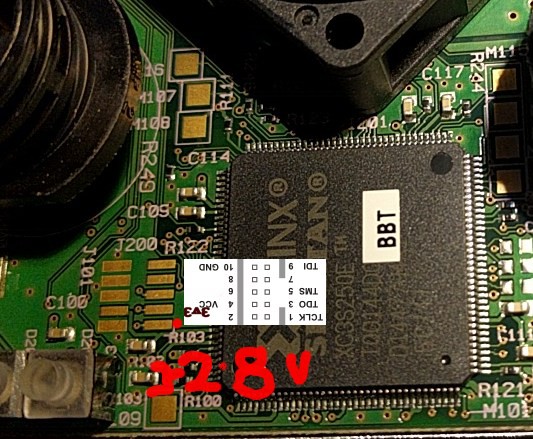FYI JTAG connections you may wish to use 2.8v as marked for your JTAG interface bus voltage instead of the 3v3 provided on the jtag connector. I honestly think 3v3's fine but... someone would have to disprove my experience by doing it and not having the $20 Xilinx blow up.

It looks like pretty much any JTAG interface is fine; there are a bunch of tools; OpenOCD has some JTAG support but I didn't see Spartan 3E programming in there (it looks a bit light on fpga support unless I was looking at the wrong thing).
You can use the Xilinx ISE tools and the "device programmer" part can generate a kinda "jtag recording" (SVF file I think?) which is so simple almost any JTAG programmer can replay it to program a device.
I tend to use a lot of embedded linux (currently Orange Pi boards which are my default hardware platform now) so "xc3sprog" works fine with an FT2232-based JTAG interface.
If anyone wants a buying suggestion for a JTAG interface; If you want a quality tool the "TIAO tumba" FT2232 board (relatively pricey at $30) has all the level shifting and jumper doodads you want and looks to be a perpetually handy thing to have around the house.
 Richard Aplin
Richard Aplin
Discussions
Become a Hackaday.io Member
Create an account to leave a comment. Already have an account? Log In.
An easier place to get a voltage reference for the JTAG interface is the M108 test point. It is connected to VCCAUX and VCCO_0 on the FPGA. VCCAUX is used to power the JTAG interface.
Are you sure? yes | no
OpenOCD has a SVF player that has no problem pushing a bitstream into the chip... although once it's done it throws a segfault, but that's probably a bug in my implementation.
For what it's worth (for the pedantic among us), the correct JTAG voltage should really be 2.5V, not 2.8V - that's what's in the XC3S250E spec. I measure my board to be producing a little over 2.6V. 3.3V can be done by following the procedure in XAPP453, which appears to have been implemented on this board - there are 100R resistors between the JTAG pins and the FPGA.
Are you sure? yes | no